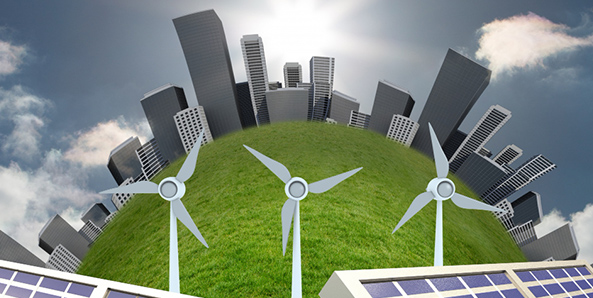

Sustainable practices are rapidly becoming a driving force of the construction industry as the world strives to lower its carbon footprint and embrace eco-friendly building methods. A more sustainable future can be achieved through the adoption of technology and the development of skills. There are a number of key initiatives and collaborations that are revolutionising the Indian construction sector. The shift towards green buildings, the rise of steel structures, and the widespread adoption of sustainable practices throughout the construction process signal a major transformation. In India, sustainable practices have a huge impact on the construction industry. This blog delves into these practices and their impact on India’s construction industry.
Technology Investments: Shaping Construction’s Future
Technology is crucial in transforming the construction industry and promoting sustainable practices. Advanced technologies enable optimisation processes, reduce costs, and enhance project outcomes. Digital twins and Building Information Modeling (BIM) are revolutionising design and construction by creating virtual representations of physical structures, facilitating better planning, improved collaboration, and reduced errors. According to industry reports, between 2023 and 2024, the adoption of BIM software in the country increased by 35%. Augmented Reality (AR) and Virtual Reality (VR) are also reshaping design, training, and maintenance processes. These technologies provide immersive experiences that allow stakeholders to visualise final projects, simulate construction scenarios, and streamline maintenance tasks.
Steel Construction: A Sustainable Alternative
Steel construction is gaining traction as a sustainable alternative to traditional building materials due to its durability, recyclability, and energy efficiency. Using steel reduces the environmental impact linked to raw material extraction and production. Steel structures offer flexibility, allowing for easier future modifications and expansions. According to the World Steel Association’s Short Range Outlook, India will continue to be a bright spot in the global steel industry, with steel demand expected to climb at a high pace of 7.7% in 2024, compared to 1.9% of global growth. Leading industry players are advocating for steel construction in India, providing innovative products and solutions tailored for steel structures. These efforts help specifiers and contractors optimise their construction processes and achieve sustainable results.
Renewable Energy Sources
Renewable energy sources, such as solar panels and wind turbines, can now be included into project designs thanks to technological advancements. So, using these on-site renewable energy sources rather than relying only on electricity from the local grid reduces carbon emissions and provides developers with long-term operational cost benefits by eliminating the requirement for electricity from utility providers.
Green Building Materials
Technology also supports sustainable construction through the use of green building materials. These materials are engineered to minimise emissions during production and reduce waste during and after construction. According to a report of the Indian Green Building Council (IGBC), certified green buildings in India save 40–50% on energy and 20–30% on water when compared to conventional structures. Biodegradable materials like bamboo, timber, mycelium, and organic paints provide an eco-friendly alternative to traditional materials which creates hazardous waste. These materials decompose naturally without releasing toxins and can be used in modern construction technologies, such as foundations and insulation. These materials often have longer life spans than traditional ones, leading to less frequent replacements or repairs and reducing long-term costs.
Digitisation
Digital processes enhance collaboration and communication efficiency between teams, leading to more accurate and timely results. This minimises unexpected issues during a project, thereby conserving both energy and resources. Digitisation reduces waste from paper or materials, ensuring accuracy and efficient inventory monitoring. Utilising digital twins in the design process allows for quick adjustments with minimal resource impact, which is essential for creating a more sustainable construction experience.
The Future of Sustainable Construction in India
The future of sustainable construction in India is promising, driven by ongoing efforts to promote eco-friendly practices and reduce the industry’s carbon footprint. As the demand for green buildings rises, the use of sustainable solutions such as drywalls and steel structures will become more prevalent. Likewise, integrating sustainable practices throughout the construction process will ensure environmental considerations are prioritised at every stage.
Sustainable construction practices offer a significant opportunity for the construction industry in India. The Guardians, a leading real estate advisory firm in India, provides crucial support to developers. For valuable insights and direct property consultation, visit The Guardians‘ website. Specialising in property advisory and real estate management services, we enhance project value and efficiency.